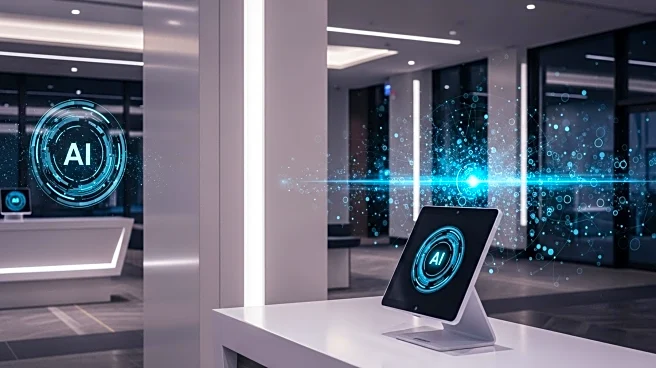What's Happening?
Independent hotels are increasingly adopting artificial intelligence (AI) to improve guest services and operational efficiency, according to a new report titled 'The AI Hospitality Revolution.' The report highlights that 74% of hotel owners using AI have found it meets or exceeds their expectations. AI is primarily being used in guest-facing areas such as automated messaging, chatbots, and marketing tools, which allow for faster communication and personalized guest interactions. These implementations have led to significant improvements in staff time savings, cost reductions, higher occupancy rates, and better guest reviews. Despite these advancements, challenges such as lack of technical expertise and integration difficulties remain.
Why It's Important?
The adoption of AI in the hospitality sector is crucial as it addresses labor shortages and rising operational costs, providing independent hotels with a competitive edge. By automating repetitive tasks, AI allows staff to focus on enhancing the guest experience, which is vital in a market where guest expectations are continually increasing. The successful integration of AI can lead to increased revenue and operational efficiency, making it an attractive option for independent hotels looking to optimize their resources and improve profitability.
What's Next?
As AI technology continues to evolve, independent hotels are expected to expand their use of AI in areas such as energy management, guest personalization, and staff scheduling. The report indicates that nearly 70% of hotel owners view AI as critical for maintaining competitiveness, with plans to increase adoption in the coming year. This trend suggests a growing reliance on AI to meet the demands of modern hospitality and improve overall service quality.
Beyond the Headlines
The integration of AI in hospitality raises questions about the balance between technology and the human touch, which is a cornerstone of the industry. While AI can enhance efficiency, maintaining a personal connection with guests remains essential. The report emphasizes the importance of AI tools that feel personal, highlighting the need for technology that complements rather than replaces human interaction.









